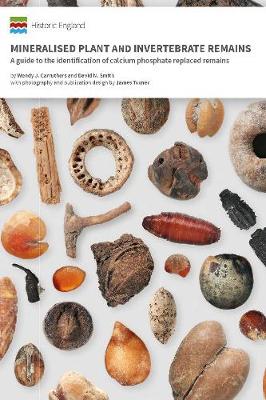Historic England Guidance
1 total work
Mineralised Plant and Invertebrate Remains
by Wendy J. Carruthers and David N. Smith
Published 27 March 2020
This photographic guide will assist scientists working with archaeological plant or insect remains in the identification of calcium-phosphate replaced biological remains. Diagnostic criteria and images are presented for the most commonly occurring taxa found as mineralised remains in cesspits, drains and middens, dating from the prehistoric to post-medieval periods .
Phosphatic mineralisation primarily preserves soft tissues and often results in the loss of diagnostic features typically seen in other types of preservation, particularly of the thickened, protective outer layers (pericarps and seed coats) of fruits and seeds. For insect remains this type of preservation primarily favours fly (Diptera) pupae and puparia. High quality photographic images are presented, for the most part using mineralised archaeological material. High magnification images of specific structures and cell layers (magnifications of up to x160) are included where appropriate. Variations of potential preservation are illustrated where possible. Identification criteria for each taxon is highlighted, along with examples of archaeological sites which yielded mineralised material, information on modern ecology and interpretative value of each taxon.
Phosphatic mineralisation primarily preserves soft tissues and often results in the loss of diagnostic features typically seen in other types of preservation, particularly of the thickened, protective outer layers (pericarps and seed coats) of fruits and seeds. For insect remains this type of preservation primarily favours fly (Diptera) pupae and puparia. High quality photographic images are presented, for the most part using mineralised archaeological material. High magnification images of specific structures and cell layers (magnifications of up to x160) are included where appropriate. Variations of potential preservation are illustrated where possible. Identification criteria for each taxon is highlighted, along with examples of archaeological sites which yielded mineralised material, information on modern ecology and interpretative value of each taxon.
